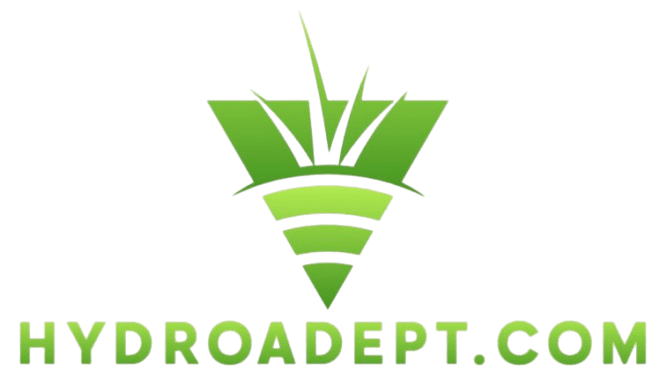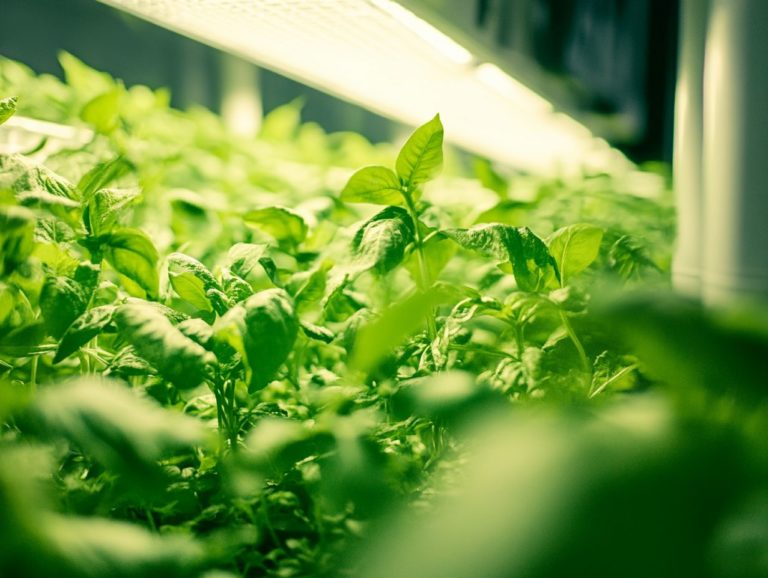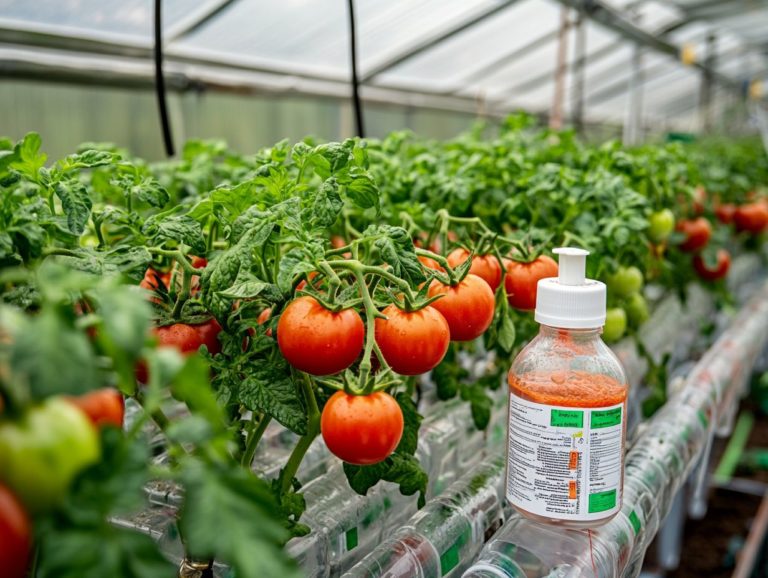The Best Time to Adjust Nutrient Levels
Nutrient levels are pivotal to your overall health and well-being. Grasping what these levels signify and how they affect your body is essential if you seek to optimize your health.
This article delves into the significance of tailoring nutrient levels to meet your individual dietary needs and medical conditions. Discover when and how to make these adjustments for your best health!
Whether your goal is to elevate your nutrition or effectively manage specific health concerns, this guide presents strategies to support your journey towards a healthier you.
Contents
- Key Takeaways:
- Understanding Nutrient Levels
- Importance of Adjusting Nutrient Levels
- Factors to Consider When Adjusting Nutrient Levels
- Best Time to Adjust Nutrient Levels
- How to Adjust Nutrient Levels
- Frequently Asked Questions
- What are nutrient levels and why is it important to adjust them?
- When is the best time to adjust nutrient levels?
- Can nutrient levels be adjusted through diet alone?
- What are some signs of nutrient imbalances that may require adjustment?
- Is there a specific time of day that is best for adjusting nutrient levels?
- Can nutrient levels be adjusted too frequently?
Key Takeaways:

- Adjusting nutrient levels is crucial for maintaining overall health and well-being. Consider your dietary needs, medical conditions, and timing for optimal absorption and utilization.
- Timing is an important factor when adjusting nutrient levels. For optimal absorption and utilization, aim to adjust your nutrient intake at the same time each day.
- When adjusting nutrient levels, it’s important to consider your specific dietary needs and goals. Strategies for increasing or decreasing nutrient intake can be helpful in achieving your desired levels.
Understanding Nutrient Levels
Understanding nutrient levels is essential for your success in hydroponic gardening. These levels significantly influence plant growth and health. By meticulously monitoring and adjusting your nutrient solutions, you can optimize nutrient strength. This ensures your plants receive the precise balance of the main nutrients they need and trace minerals to thrive.
This process also requires you to check water quality and conduct regular nutrient testing to pinpoint any potential deficiencies. Embracing this approach not only supports sustainable food production but also enhances water efficiency in urban farming practices.
What are Nutrient Levels?
Nutrient levels refer to the concentration of essential elements in your hydroponic system, typically measured in parts per million (ppm). These measurements are vital for maintaining the optimal growth conditions for your plants. Different species have unique nutrient requirements.
In the world of hydroponics, macronutrients like nitrogen, phosphorus, and potassium play a central role. They act as the fundamental building blocks for your plants’ development. Meanwhile, micronutrients such as iron, manganese, and zinc, though necessary in smaller amounts, are critical for enzymatic functions and overall plant health.
Monitoring these nutrient levels is crucial. Any imbalances can lead to nutrient deficiencies or toxicities that negatively affect your plant yields and quality. Regular testing and adjustments of your nutrient solutions will help you create a thriving hydroponic environment that minimizes the risk of pest infestations.
Importance of Adjusting Nutrient Levels
Adjusting nutrient levels is essential for maintaining the vitality of your plants in hydroponic gardening. If the nutrient concentration is off, you risk nutrient deficiencies and a heightened vulnerability to pest infestations, which can hinder food production.
By routinely assessing and fine-tuning your nutrient solutions, you ensure your plants receive the right balance of essential nutrients. This balance is paramount for achieving optimal growth and overall health.
Impact on Overall Health and Well-being

The nutrient levels in a hydroponic system significantly affect the overall health and well-being of both the plants and the consumers. This ultimately influences the quality of food production and the nutritional value of the crops.
A well-balanced nutrient solution is essential for maximizing plant growth. When plants flourish in a nutrient-rich environment, they produce higher concentrations of beneficial compounds like antioxidants and phytochemicals, enhancing their role in urban farming.
These nutrient-dense plants can lead to improved health outcomes for you. Incorporating them into your diet supports immune function, boosts energy levels, and reduces the risk of chronic diseases.
Understanding how nutrient levels impact plant health is essential. It s a crucial connection to enhancing human health, underscoring the importance of cultivating and consuming nutrient-rich crops through advanced methods like hydroponics.
Factors to Consider When Adjusting Nutrient Levels
When adjusting nutrient levels in hydroponics, consider several factors that can significantly impact your plants. This includes their specific dietary needs and any existing conditions that may influence their nutrient requirements, such as water quality and nutrient solution composition.
Tailor your approach to ensure your plants grow strong and healthy. Take into account their unique requirements for water efficiency and nutrient absorption.
Dietary Needs and Goals
Understanding your dietary needs and goals is crucial for optimizing nutrient levels in hydroponic systems. Different plants have unique requirements for nutrient concentrations.
This knowledge is essential for anyone involved in hydroponic gardening. These systems provide a level of control that traditional gardening simply can’t match.
By carefully analyzing the specific nutrient preferences of the fruits, vegetables, or herbs you wish to cultivate, you can significantly enhance both the yield and flavor of your produce.
For example, if you’re focusing on leafy greens, you may need to increase nitrogen levels. Fruiting plants like tomatoes will benefit from a balanced approach to phosphorus and potassium, along with essential small nutrients like iron and zinc.
Customizing your nutrient solutions helps your plants thrive. It also aligns your harvest with your dietary preferences or market demands, making your efforts in hydroponic gardening remarkably effective.
Medical Conditions and Medications
Certain medical conditions and medications can profoundly affect the nutrient levels essential for cultivating healthy plants in hydroponic gardening.
If you have diabetes, you may need to make specific nutrient adjustments for optimal growth conditions for plants like lettuce and herbs. This necessity arises from the varying absorption rates of large and small nutrients, influenced by both the types of plants you choose and the environmental factors at play.
When diving into hydroponics, it’s crucial to monitor your nutrient solution meticulously. If levels aren’t tailored to your plants’ needs, you might encounter issues like nutrient lockout, which happens when plants cannot absorb nutrients properly. This can lead to stunted growth or disappointing yields.
Achieving the right balance is vital for plant health and nutrient absorption. This ultimately fosters a thriving hydroponic ecosystem that sustains higher yields and better crop quality.
Best Time to Adjust Nutrient Levels

Identifying the optimal moments to adjust nutrient levels is essential for maximizing the absorption and utilization of nutrients by plants within a hydroponic system. This attention to timing will significantly enhance your plants’ growth and overall health.
Start adjusting your nutrient levels now for a thriving garden!
Timing for Optimal Absorption and Utilization
Adjusting the timing of nutrient delivery in your hydroponic system can greatly affect plant health. This ensures they receive what they need during their peak growth periods.
By syncing nutrient delivery with your plants’ growth phases, you can boost their overall health and yield. For example, young plants in the vegetative stage thrive with higher nitrogen levels, which support strong leaf growth.
As your plants move into the flowering phase, it’s crucial to shift towards phosphorus and potassium. These nutrients promote bud formation and enhance fruit quality.
Implementing a nutrient delivery schedule that matches these growth cycles optimizes mineral uptake and minimizes waste. Advanced sensors can refine your timing strategies, allowing for precise adjustments tailored to your crops.
How to Adjust Nutrient Levels
Adjusting nutrient levels in a hydroponic system requires careful attention. A strong understanding of nutrient intake ensures your plants receive the right concentration of essential elements.
Strategies for Increasing or Decreasing Nutrient Intake
To manage nutrient intake effectively, assess both nutrient solutions and environmental conditions. Key factors include water quality and temperature.
Monitor variables like pH and electrical conductivity (EC), which is a measure of how well water conducts electricity, indicating nutrient levels. These measurements help you fine-tune your nutrient solutions. For instance, if leafy greens show signs of nitrogen deficiency, increasing nitrogen concentration can fix the issue.
Adopt a systematic approach by adjusting nutrient levels weekly based on your plants’ growth stages. Keeping a log of your adjustments and responses helps you develop a tailored nutrient plan that evolves with your plants’ changing needs.
Frequently Asked Questions

What are nutrient levels and why is it important to adjust them?
Nutrient levels are the amounts of essential vitamins, minerals, and other substances needed for good health. Adjusting them is vital because imbalances can lead to deficiencies or excesses, affecting overall well-being.
When is the best time to adjust nutrient levels?
Adjust nutrient levels when you notice a deficiency or excess or as recommended by a healthcare professional. Regular monitoring and adjustments help maintain optimal health.
Can nutrient levels be adjusted through diet alone?
In many cases, you can adjust nutrient levels through diet. However, for severe deficiencies or specific health conditions, supplements or medical interventions may be necessary.
What are some signs of nutrient imbalances that may require adjustment?
Signs of nutrient imbalances include fatigue, weakness, unusual cravings, mood changes, and physical symptoms like hair loss or skin issues. Consult a healthcare professional if you experience any of these signs.
Is there a specific time of day that is best for adjusting nutrient levels?
The best time to adjust nutrient levels varies by individual needs. It’s generally advisable to spread nutrient intake throughout the day for optimal absorption. Consult a healthcare professional for personalized recommendations.
Can nutrient levels be adjusted too frequently?
Yes, adjusting nutrient amounts too often can lead to imbalances or deficiencies. It’s crucial to monitor your levels and give your body time to adapt to any changes.
Consult a healthcare professional to find the right frequency for adjustments. Proper nutrient management can significantly impact your health!






